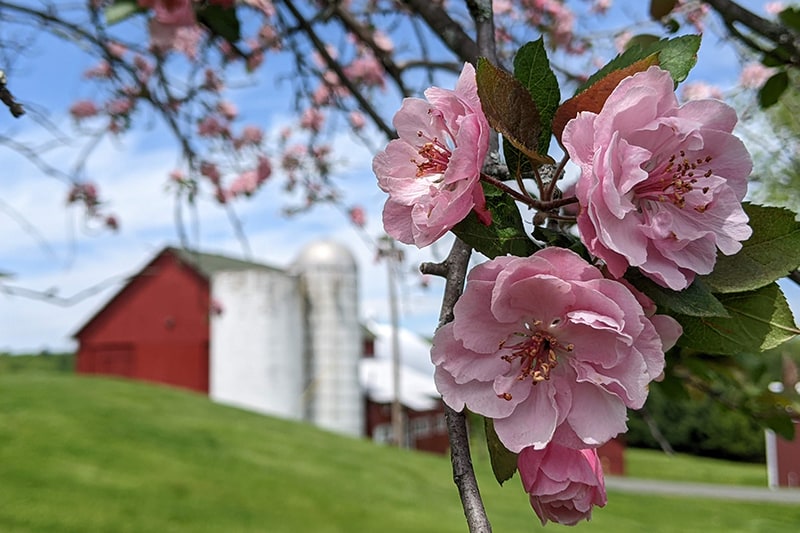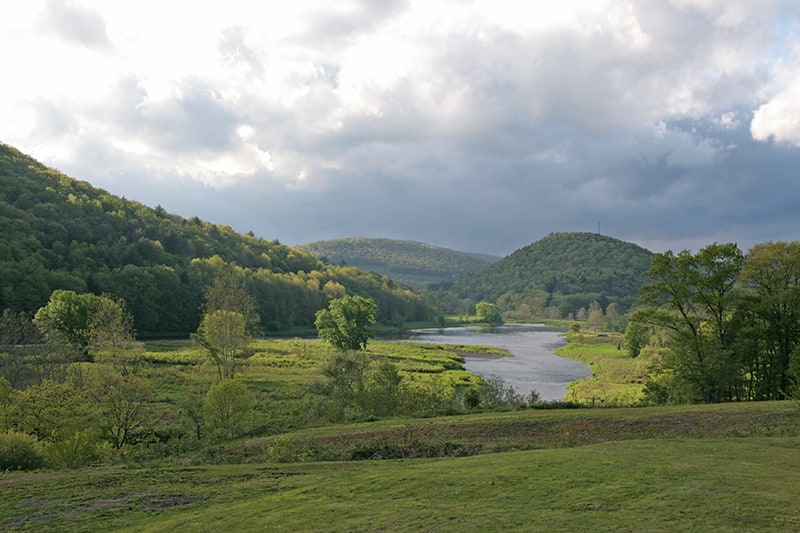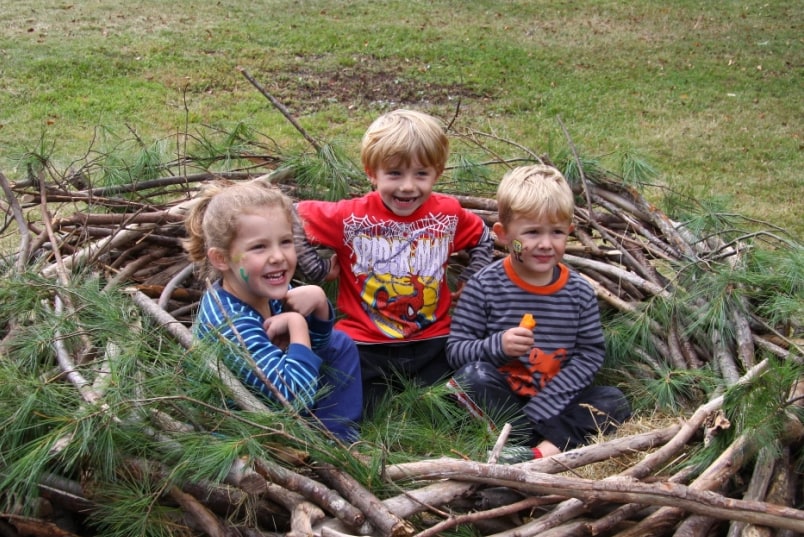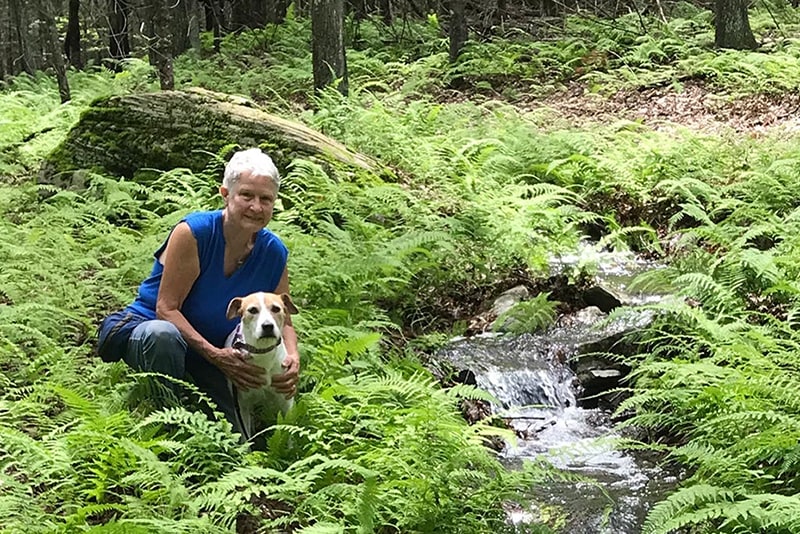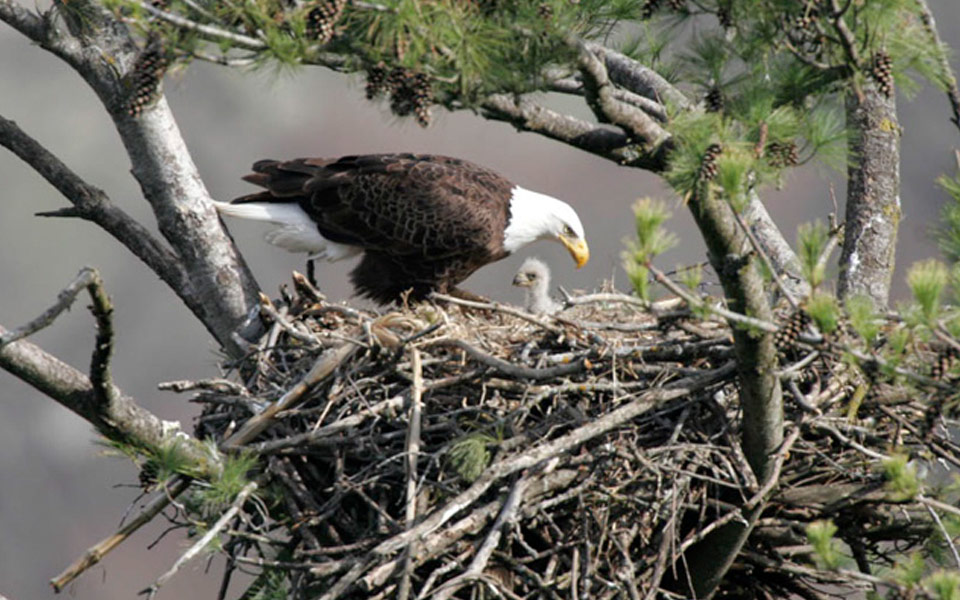The Butterfly Barn: Giving Back to Nature
In late 1996, a conservation easement protecting 12.5 acres of riverfront land was donated to Delaware Highlands Conservancy. The owner will continue to live there, but will never subdivide the land into smaller lots, and the property may only be used for agricultural or educational purposes, such as the Butterfly Barn. Wondering who donated the easement? It belongs to Barbara Yeaman, Conservancy founder.
On November 3, 2003, Leonard and Avis Rolston of Milanville released the last adult monarchs reared in the Butterfly Barn nature center that year, including a small female who came to be named “Lucky.” En route to Florida, the Rolstons parked at a rest stop near Roanoke Rapids, North Carolina and freed nine winged passengers. Every summer, with the help of local children, naturalist Ed Wesely and Barbara Yeaman rescued monarch eggs and larvae from threatened habitats and reared them in individual containers in the Butterfly Barn near Milanville–typically rearing and releasing about 400 butterflies.
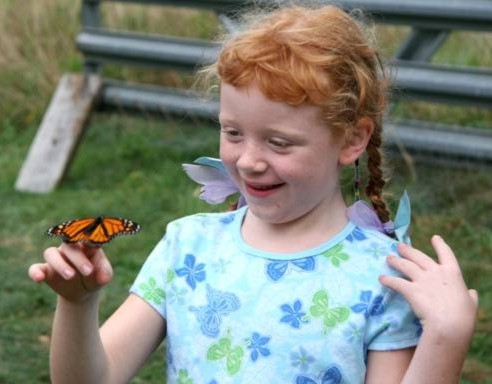 “Lucky,” one of the nine, had disappeared into thick grass in mid-September when her container was knocked over. Just a 3/16″ long caterpillar, she miraculously turned up the next morning on a discarded milkweed leaf.
“Lucky,” one of the nine, had disappeared into thick grass in mid-September when her container was knocked over. Just a 3/16″ long caterpillar, she miraculously turned up the next morning on a discarded milkweed leaf.
Ed, Barbara, and their volunteers not only fed each caterpillar fresh milkweed leaves and cleaned its cage when needed, but kept records of each individual to identify “hot spots” for egg deposition, and trace “hot spots” of viral and bacterial infections, and discover the locales and times of year that monarch caterpillars are parasitized by tachinid flies.
“Tachinids” are a large family that parasitizes caterpillar pests, but also contains species that lay eggs on monarch caterpillars. They learned, for example, that a “hot spot” for tachinids that attack monarchs is a hillside farm about two miles from the Butterfly Barn.
In exchange for restricting subdivision and donating an easement to Delaware Highlands Conservancy, landowners are eligible to receive a significant federal tax deduction. In this way the IRS rewards owners for conserving valuable agricultural land, scenic views, wildlife habitat, recognized historic sites or wetlands and water quality. The Conservancy will then ensure that the conditions of the easement are respected in perpetuity.

